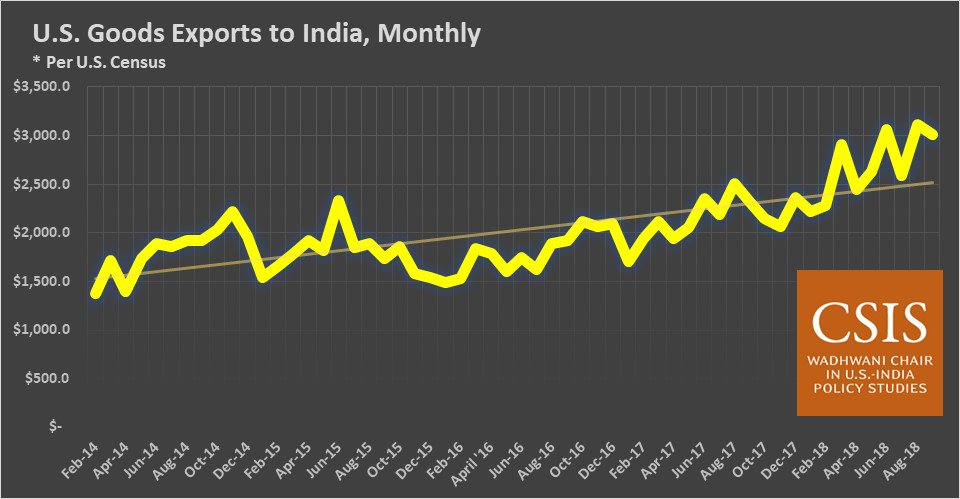
U.S. goods exports to India: $31 bn last 12 months. Nearly 50% hike over last 2 years.

That's Donald Trump and his Krav MAGA skills.U.S. goods exports to India: $31 bn last 12 months. Nearly 50% hike over last 2 years.
Her stand out feature for us is that she is a convert to Hinduism. I see this as a ploy by USA deep state to get some foolish Hindu factions from Bharat onboard their side in a near WW3??
Personally, I hope she looses.
Edit:
Like I suspected she is a far-right pretending to be a progressive. Coming from a political family. Her being Hindu is just play acting.
Tulsi Gabbard Is Not Your Friend
Geopolitically illiterate.Trump targets India in trade crackdown
The US plans to end preferential trade status for India, under a scheme which allows certain products to enter the US duty-free.
President Donald Trump said India had failed to assure the US it would provide reasonable access to its markets.
India said the US move would have a "minimal economic impact".
India is the world's biggest beneficiary of America's GSP programme, which was created in the 1970s to help developing and poor countries improve their economic growth prospects.
At the time, India was clocking in growth rates of as low as 3.5%. This year it is thought that it could shoot up to the world's fifth largest economy, rivalling the UK.
Analysts say that's why the US, and in particular the Trump administration, is saying things need to change.
Countries that are no longer developing nations shouldn't continue to get special access from the US to help them grow - especially if they're not providing reciprocal access.
Trade experts also say there's a sense within the Trump administration that if they're going after China based on its claims that it is still a developing country, then it is hypocritical not to do the same with India, too.
The US has also imposed tariffs on steel and aluminium imports from countries around the world. Last year, India retaliated to those tariff hikes by raising import duties on a range of goods.
Indeed, although some very interesting info available on the other link I posted. Do check that out or head over to the Small Arms thread.How convenient,comes as soon as DRDO MP-ATGM is ready for tests
